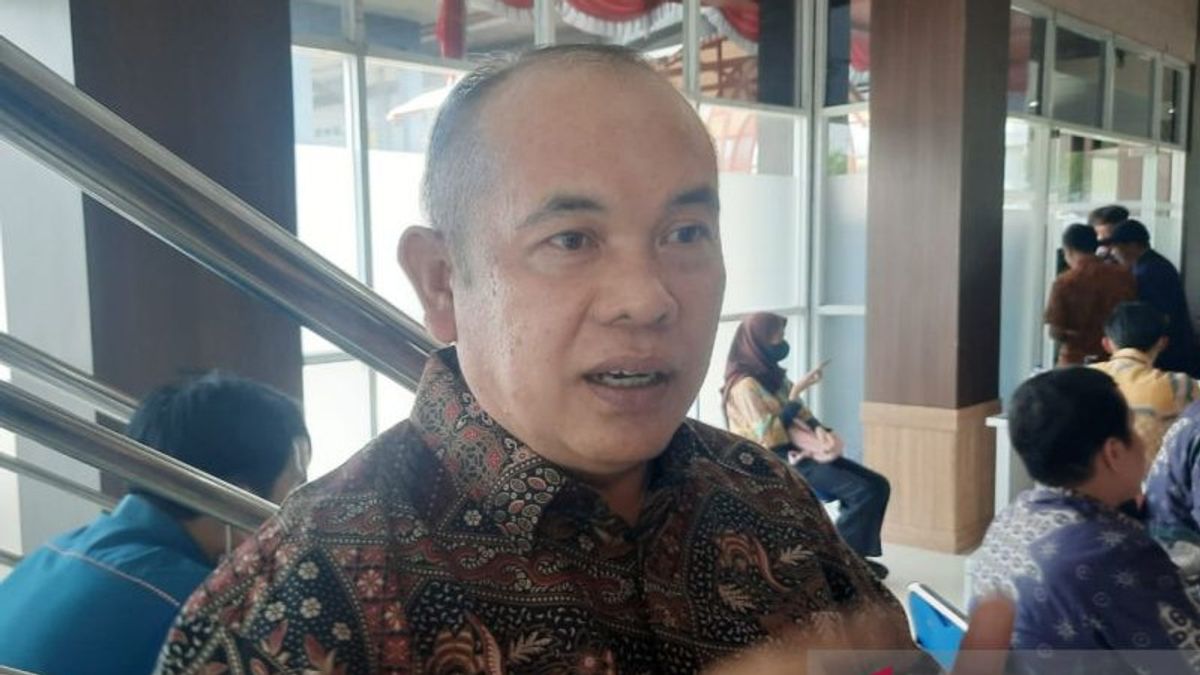BOGOR - Chairman of the Indonesian Association of chicken and meatball noodle traders (Papmiso) Bambang Hariyanto received complaints from thousands of traders who complained about the high cost of applying for the manufacture of halal certification.
"Because we trade around, the most turnover is only IDR 300 thousand per day. To take care of halal certification of up to IDR 3.2 million. The question is, can we afford it?" said Bambang in Cikarang, Antara, Wednesday, September 21.
According to him, this condition is inversely proportional to the mandate of President Joko Widodo who wants halal certification for meatball traders to be carried out for free.
"This is counter-productive to the President's request that this meatball driver be given free of charge because this is an MSME. Meanwhile, there are 2,500 of our members," he said.
He said the process of submitting halal certification for meatball traders was classified as a regular proposal whose costs had to be borne by the traders themselves.
This is because the main raw material for making meatballs comes from processed meat which is included in the list of high-risk raw materials so that halal certification must be traced first, both in slaughterhouses and at the slaughtering level.
"Today what is not synchronized is our willingness as meatball sellers and organizers, in this case BPJPH (Halal Product Guarantee Agency). There are differences in how meatball meatball drivers fall into the high risk category, so the product is at high risk, so they cannot get halal certification for free, unless it is facilitated," he said.
Coordinator of Halal Certification at the Indonesian Ministry of Religion Ahmad Sukandar explained that basically the cost of managing halal certification was only Rp. 660 thousand.
"Now there is a tariff, I think it's competitive, if SMEs only have IDR 660 thousand, for whom is the money? IDR 350 thousand for LPH (Halal Inspection Agency), BPJPH for IDR 200 thousand, then IDR 100 thousand for fatwa hearings," he said.
He explained that there were additional costs in the form of accommodation and transportation for auditors from the LPH who conducted studies and field visits. The process takes a lot of time to make costs swell up to millions of rupiah.
"But it's outside of transportation and accommodation for auditors. For meat, it must be traced first, because there is a risk that there is a critical point in the meat, who slaughters it? In which RPH? Does RPH have a halal certificate or not? Do those who slaughter have a Juleha certificate (Juru Sembelih Halal) that has been issued by the livestock and agricultural offices, they should have a certificate," he said.
Sukandar hopes that the review process can be shortened so as to cut the cost of submitting halal certification by meatball traders.
"But for Bekasi Regency, I don't think transportation for this auditor needs to stay because it's close, one day it's over. It doesn't have to be up to Rp. 3 million, I think it's only Rp. 1.5 million if there's only one product," he said.
The English, Chinese, Japanese, Arabic, and French versions are automatically generated by the AI. So there may still be inaccuracies in translating, please always see Indonesian as our main language. (system supported by DigitalSiber.id)









